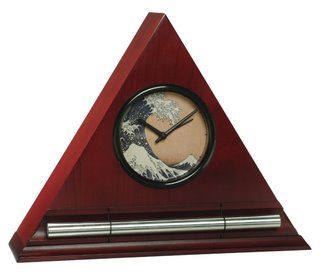
downtime
I’m not great with downtime. In line at the post office, I whip out my cell phone and delete old text messages. When I’m stopped at a light, I retrieve a cloth from the glove compartment and dust the dashboard.
At home, I try to snuggle with my pug and relax, but I can’t. I get up to unload the dishwasher, check my e-mail, sort socks, or get a jump on tomorrow’s research and writing. Clearly, I feel better ticking items off my to-do list. The question is: Would I be better off just letting my mind drift?
Truth is, the urge to occupy idle time is tough to fight. We’re a nation of doers, after all: bustling workaholics who have a hard time sitting still (unless it’s in front of the TV). As much as we try to crowd it out, however, experts tell us that boredom is an essential part of the human experience. It’s a counterbalance to all that busyness. In fact, some argue it’s a gateway to peace.
“Create space in your life,” says Body+Soul life coach Cheryl Richardson, “and you’ll find serenity and inspiration on the other side.”
If a little thumb-twiddling can truly lead to better things, why do many of us so desperately avoid it? To demystify our aversion to idleness, we asked Richardson and psychotherapist Richard Winter, M.D., to explain what’s fueling our discomfort with those frightfully unscheduled moments. Here, they share the top three reasons we’re so down on downtime, as well as offer up ways to embrace it — and find deeper satisfaction in the everyday.
We’re Overstimulated
Remember when the doctor’s waiting room was just that — a place to sit, with nothing to do but wait? Now, with TV screens popping up in medical offices, taxicabs, elevators, and even the checkout line (not to mention the lure of your cell phone, iPod, and BlackBerry), every spare moment provides another opportunity for stimulation. As a result, the empty pockets of time we once took for granted have vanished.

schedule downtime
The problem with overstimulation, says Winter, author of “Still Bored in a Culture of Entertainment,” is it creates a “psychological callus” that hardens over time and can eventually keep us from responding with depth to anything or anyone. “Because we can’t discriminate between so many options, we completely shut down our attention to almost everything.”
That, he argues, essentially leaves us feeling passive and craving temporary relief from boredom. Worse, we end up with no time to reflect on our lives, making it harder to forge meaningful connections with the people around us.
Find joy in the humdrum. Recharge your inner resources by reacquainting yourself with quiet. This can prove surprisingly hard if you’re used to nonstop stimulation, so aim for specific actions. Turn off the TV after a certain time each evening. Drive one way of your commute without listening to NPR.
Better still, take a calming walk three nights a week after dinner — and leave the iPod home. The physical activity will satisfy your need to do something, all while energizing you in a way that watching Law & Order can’t. By welcoming a little idle time and its attendant reflection, says Winter, you’ll soon come to “delight in the ordinary again.”
adapted from Body + Soul October 2008

Zen Clock for Timing your downtime with a gentle chime
Now & Zen’s Alarm Clock Shop
1638 Pearl Street
Boulder, CO 80302
(800) 779-6383